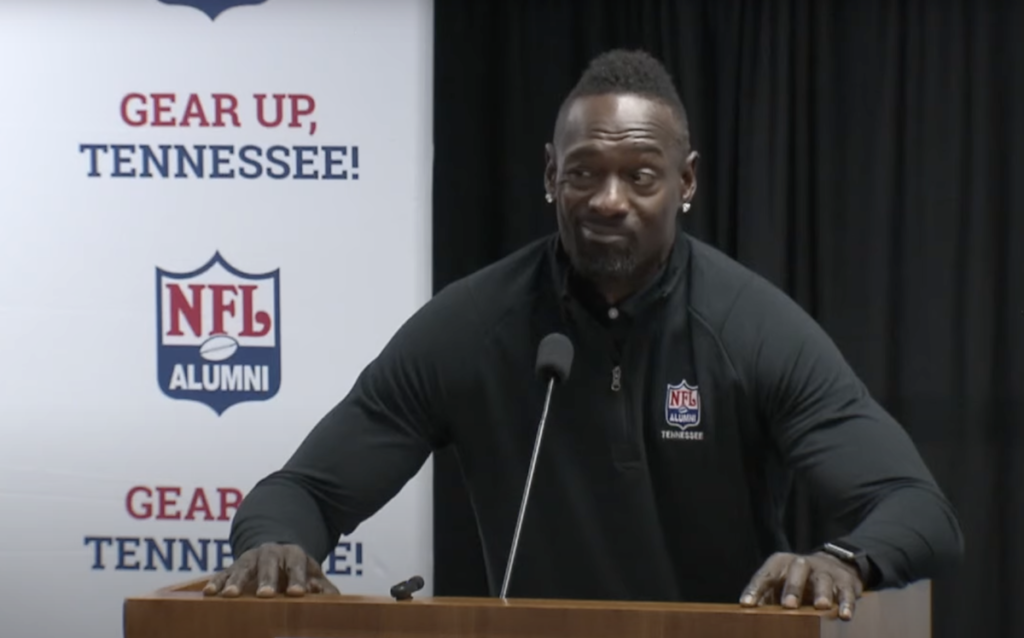
It’s been a while since the Tennessee Department of Health was actively promoting COVID vaccines. Now, the agency has launched a new campaign, though they’re letting former Tennessee Titans do the talking.
The NFL Alumni Association announced the “Gear Up, Tennessee!” initiative on Tuesday and had some of the biggest names in the franchise’s history talk about why they have been vaccinated against COVID. NFL Alumni groups around the country have participated in similar localized campaigns throughout the pandemic in partnership with public health agencies.
“It was kind of like me playing football without wearing a helmet,” says Jevon Kearse, a defensive end who set an NFL record for quarterback sacks as a rookie. “Don’t get me wrong, I had my share of injuries. But if I didn’t wear a helmet or pads, those injuries would have been a lot worse.”
Fewer than half of Tennesseans are considered fully vaccinated, according to state figures. But interim Health Commissioner Morgan McDonald says more pressing at the moment is the number getting boosted. Less than 5% have bothered to get the latest shot which offers more protection against new strains of COVID.
“Some may ask us, why now? Why launch a particular COVID message right now?” McDonald says, noting that life has largely returned to normal since the original COVID vaccine came out nearly two years ago.
Vaccine promotion has become politically charged at times in Tennessee. State legislators grilled McDonald’s predecessor over her COVID vaccine advocacy, especially a campaign to vaccinate children.
McDonald doesn’t have much time left at the department’s helm with a permanent commissioner starting in January. But she says the motivating factor is the rising case count.
“We know this virus is constantly mutating,” she says. “So as we’re heading into a holiday season where we’re going to be seeing friends and family, we do encourage you to go ahead and get that vaccine and get the booster.”
The two-year campaign is supposed to involve public service announcements, town halls and listening sessions. The $2.4 million in funding for 2023 and 2024 comes from a federal grant focused on outreach to minority and high-risk populations, says department spokesperson Dean Flener.
But unlike the ad blitz in mid-2021 that resulted in political blowback, there are no plans for paid media placements.

